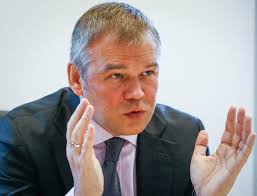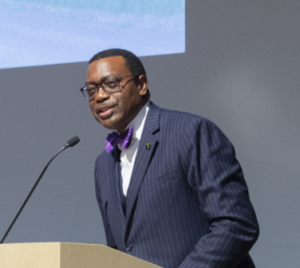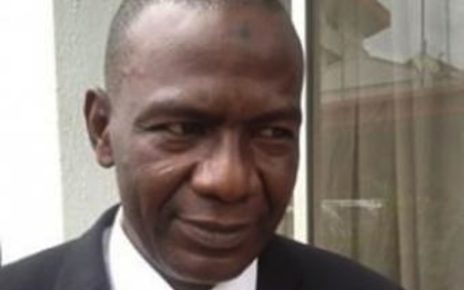Russia’s central bank may have to sink up to $3.4 billion into its bailout intervention today of Promsvyazbank, the country’s 10th largest private lender, the third such rescue this year.
Reuters reports that “the bailouts mark the biggest challenge to Russia’s financial sector since a financial crisis 20 years ago and show how the country and its banks are grappling with the economic impact of lower oil prices and Western sanctions”
Promsvyazbank’s (PSB) rescue follows the central bank bailout in August of Otkritie, once the country’s largest private bank, and later B&N Bank.
The central bank has increased its estimate for the cost of the earlier bailouts to 820 billion rubles ($14 billion).
Vasily Pozdyshev, a deputy governor with the central bank, said today that the bailout of PSB would require between 100 billion rubles and 200 billion rubles ($1.7-$3.4 billion), based on a preliminary estimate.
The central bank plans to honor all PSB obligations apart from subordinated debt, estimated at around 100 billion rubles, Pozdyshev said. He said writing that off could put the rescue amount closer to the lower range of the estimate.
According to the news report, The latest rescue followed late-night talks, when the central bank presented the troubled bank with an ultimatum: find 100 billion rubles of extra capital or be bailed out.
People with direct knowledge of the matter said Promsvyazbank’s co-owner and chairman, Dmitry Ananyev, and central bank governor, Elvira Nabiullina, were quoted as agreeing on a rescue at a late-night meeting.
Dmitry Ananyev and his brother, Alexei, who together control just over 50 percent of the bank, said the bank’s serious difficulties had prompted them to ask for state support.
“Over a prolonged period of time the regulator was examining our assets, which resulted in a request for additional provisions and, as a result, the temporary administration was introduced,” PSB said in a statement.
Reuters reports further that Pozdyshev said PSB had a healthy business model before the global financial crisis of 2008 drove up non-performing loans.
The bank’s owners shifted assets that were collateral for those loans to other parts of their empire. Those assets created a drag on the other parts of the owners’ holding, so Promsvyazbank had to pour more money into them, Pozdyshev said.
He explained further: “So from a market-focused bank it turned into a lender which financed its owners. The amount of loans issued to the owners exceeds the bank’s capital.”
Pozdyshev said the loans to PSB’s owners exceed 150 billion rubles. The bank had set aside additional provisions worth 104 billion rubles this week, which knocked the capital down to 52 billion rubles. PSB needs to set aside another 150 billion rubles in provisions, Pozdyshev said.
Following the bailout, the Ananyevs have to reduce their holdings in Vozrozhdenie Bank (VZRZ.MM) to 10 percent as per central bank rules. Vozrozhdenie, which they also control, is the 36th biggest lender in Russia by assets.
There are just over 500 banks in Russia, half the number it had some years ago, as the central bank continues a clean-up supported by President Vladimir Putin.
Kremlin spokesman, Dmitry Peskov ,said on Friday there was no target for the number of banks in Russia.
The central bank said it was providing funds to support Promsvyazbank’s liquidity and would send in temporary administrators. However, it said there would be no moratorium on paying creditors and that the bank was operating as normal.
Lawmaker Anatoly Aksakov, a member of the Duma finance committee and head of the Russian Banking Association, said the bailout would not affect the wider sector and was the last such step to be taken this year.
Otkritie, Promsvyazbank and B&N Bank, which all had ties to the Kremlin, had won business lending to state energy firms and others needing to meet big overseas debt repayments as Western sanctions over the Ukraine conflict closed financial markets to state lenders such as Sberbank (SBER.MM).
Russia’s central bank is tightening requirements on lending to related parties and also demands stronger capital buffers, with the newest requirements in force from Jan 1.
The stricter rules make the business of so-called ‘pocket banks’ – creatures of the early capitalist years of Russia – less profitable.




